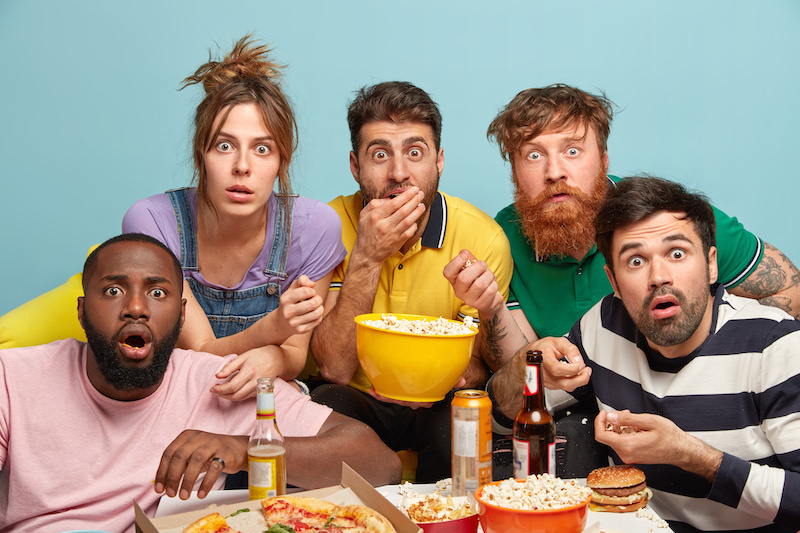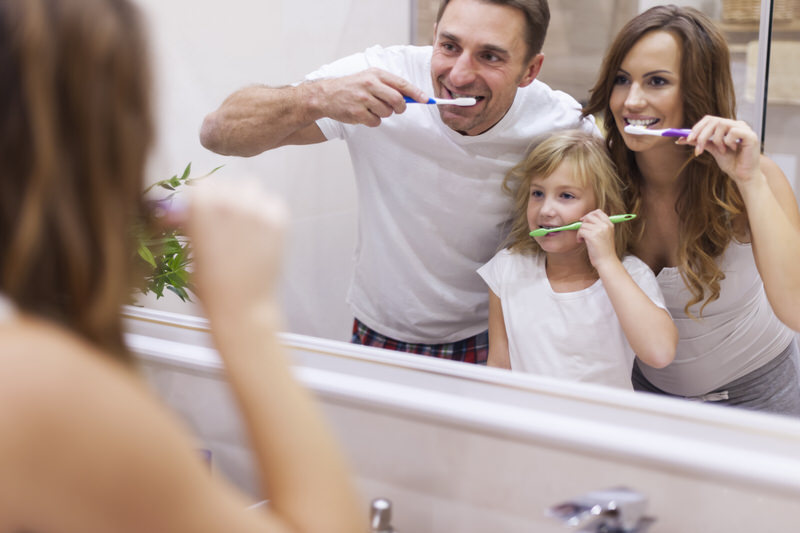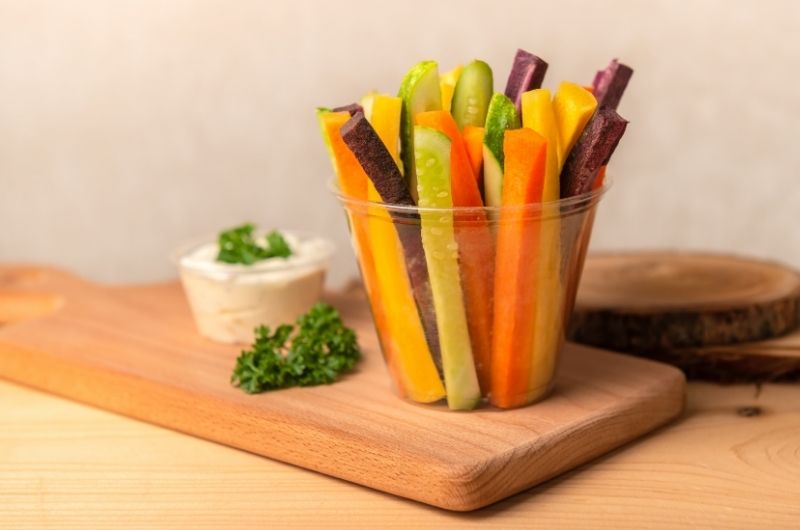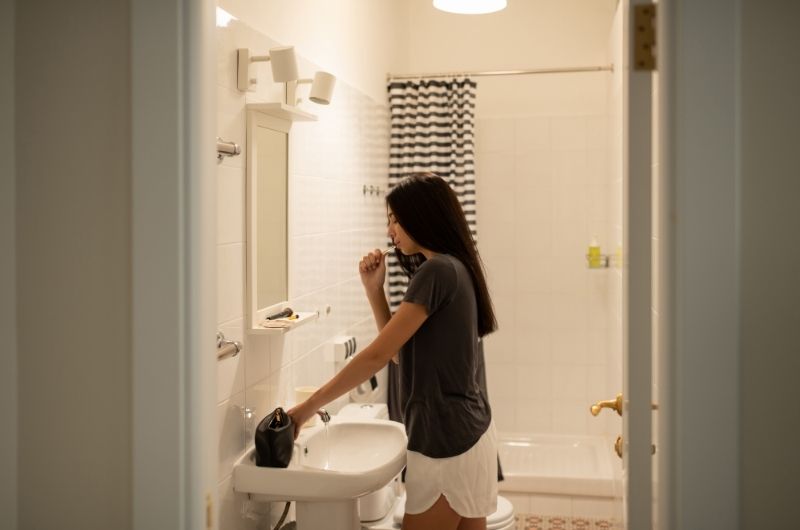The truth is that brushing at night is more crucial than brushing in the morning. If you don’t brush at night, you’re allowing plaque and acid accumulation throughout the night. This plaque can calcify and harden your teeth, leading to gum infection, bad breath, swollen gums, and gum bleeding. But, it doesn’t mean that you can skip your morning brushing session. By brushing and flossing your teeth regularly, you can beat the bacteria that cause cavities and bad breath.
While brushing your teeth at night, have you ever wondered, “Can I have a snack after brushing? Or what foods are safe to eat after brushing your teeth? Or can I go one night without brushing?”
Luckily, today I’ll be answering all your questions about eating after brushing teeth at night.
What happens when you eat after brushing your teeth at night?

If you have a habit of munching or snacking after brushing your teeth at night, you need to stop that right now. Trust me, sleeping with a million bacterial organisms multiplying in your mouth is the last thing that you’d ever want.
Want to know what those bacteria do in your mouth? They are having a feast all night long. Yes, you heard me right. You are inviting bacteria to cause tooth decay.
If you sleep without brushing or eat after brushing your teeth, you’re increasing the risks of cavities and gum diseases. Bacteria will consume food particles present on your teeth and create plaque. The plaque will break down your tooth enamel leading to cavities.
Besides, even if you sneak a small snack after brushing, containing sugar or carbs, it will make harmful oral bacteria, such as streptococcus lactobacillus and streptococcus mutants, multiply rapidly.
This will result in more lactic acid production, which will, in turn, dissolve the tooth enamel.
Drinking orange juice after brushing your teeth
Why does drinking orange juice taste bad right after brushing your teeth? Well, it doesn’t only taste bad but is also full of sugar and highly acidic.
After brushing, your tooth enamel slightly becomes weak and direct contact of sugar and acid will make it weaker.
Moreover, toothpaste contains sodium lauryl sulfate (SLS), responsible for the cleaning action of your teeth. Not only this, but it also suppresses your sweet receptors. That’s why you aren’t able to feel the sweetness of orange juice.
No doubt, orange juice is loaded with minerals and vitamins, but it isn’t the best option to have after brushing your teeth. It is best to drink orange juice in the middle of the meal.
Drinking water after brushing your teeth
It is okay to drink water after brushing your teeth as it doesn’t contain any sugar. But if you have used any mouthwash, don’t drink water for at least half an hour as it will dilute and reduce the effectiveness of the mouthwash.
However, it is recommended to spit out the excess toothpaste after brushing and not rinse immediately with water.
If you’re using a fluoridated toothpaste, rinsing off can wash away the fluoride that strengthens the enamel. Therefore, wait for at least 30 minutes before rinsing or drinking water.
Why do we brush before bedtime?

Dentists always recommend brushing teeth at least twice a day. We eat different kinds of food throughout the day, and to avoid cavities, it’s vital to brush before bedtime.
Benefits of brushing at night
- In your mouth, there is a constant build-up of acid and saliva keeps neutralizing this acid. During the night, when you are sleeping, the saliva production is low. This can increase the acid level which will in turn invite bacteria to eat teeth. However, if you brush your teeth before bedtime then the fluoride will maintain the saliva level and prevent any bacterial damage.
- Brushing every night can prevent the build-up of plaque. Now, what is plaque? Plaque is a yellow substance that sticks to your teeth and makes them look dirty. Therefore, brushing daily before sleeping will save you from many gum and teeth diseases.
- Tiny unnoticeable food particles, especially the food rich in fiber, get stuck in your teeth. The longer these particles stay in your mouth, the longer the bacteria will feed on them and can cause a cavity. Hence, brush your teeth every night before bedtime as it will remove the tiny food particles from your mouth.
What foods are safe to eat after brushing your teeth at night?

First of all, eating after you have already brushed your teeth is highly discouraged. Whatever you eat or drink would have carbohydrates and sugar in them. Remnants of any such food item will be a treat for bacteria. And bacterial growth will lead to dental caries or plaque in the long run.
However, after brushing your teeth at night, if you are still craving some snacks, you can go for food items that are not sugary or acidic. Here’s a list of things that you can eat after brushing your teeth:
Leafy green vegetables
Green veggies, such as kale or spinach, have low calories and are rich in fiber. This high quantity of fiber scrubs away small particles and plaque from your teeth. Also, leafy green vegetables provide vitamins and minerals that prevent gum diseases and strengthen teeth.
Sugarless gum
You can satisfy your late-night cravings by chewing gum, but make sure that it is a sugarless one. Such gums don’t contain any fermentable carbohydrates, which are utilized by a plaque to produce acid for tooth decay.
Not only this, but chewing gums also stimulate saliva production. The more saliva means, the lesser chances of acid attacks and enamel demonetization. Also, it ensures that there is enough fluoride to maintain the pH.
Carrots
Carrots are considered great for improving digestion and cleaning the blood, but they are also good for your oral health. This is because they are rich in fiber that scrubs and cleans your teeth. Besides, carrots stimulate salivary glands to produce more saliva. Consequently, it cleans and protects your teeth.
Frequently Asked Questions
Is it bad to eat after brushing your teeth?
No, it isn’t, but you have to wait a bit. Some foods are harsher on your teeth than others, so it is better to wait at least an hour or 30 minutes. Eating right after brushing your teeth can weaken your tooth enamel and cause serious problems.
Similarly, if you brush your teeth after eating, wait for an hour or 30 minutes before brushing your teeth. In this way, your teeth will be protected.
Do I have to brush my teeth after a midnight snack?
A study shows that there is a relation between midnight snacking and tooth loss. Researchers found that people who don’t brush their teeth or have a snack after brushing are at a greater risk of tooth loss than those who brush their teeth before sleeping.
Hence, the answer to this question is quite clear. It is recommended to rinse or brush your teeth after having a midnight snack to keep your teeth healthy and strong.
Can I skip brushing my teeth one night?
It is recommended by the American Dental Association (ADA) to brush your teeth twice a day. If you skip it once, you are encouraging the growth of bacteria in the form of plaque. And if you skip regular brushing and flossing, this plaque can harden and become tartar.
However, once tartar is built up on your teeth, it can only be removed by professionals.
Should you use mouthwash before or after brushing?
It doesn’t matter, you can use it before or after you brush. However, you can rinse your mouth with mouthwash even after lunch.
Final thoughts
To maintain a healthy mouth, brushing is crucial. Remember to brush after you eat! No matter how tired you are, push yourself for a couple of minutes and brush your teeth before bedtime.
I hope now you are aware of the consequences of eating after brushing your teeth at night. Just be conscious of your dental hygiene so that you won’t have to pay for expensive dental visits.


